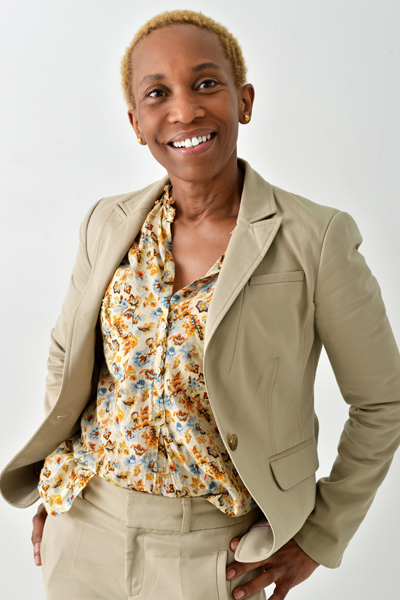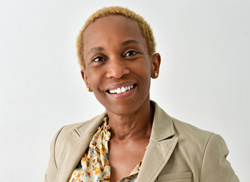
Alice Wanjira Munyua has relentlessly contributed to improving and sustaining Africa’s Internet community, believing that this is the key to showing the world that the continent is alive and well.
When Alice Wanjira Munyua completed her bachelor’s degree in Italy, she became the project director for Radio Refugee Service and the United Nations High Commissioner for Refugees (UNHCR), a job that sent her to Tanzania. She had previous experience in radio. Earlier, while pursuing her degree, Munyua worked as a programme assistant with the Vatican Radio, the Africa service in Vatican, Italy. She would then join the Malawi Broadcasting Corporation and the Department for International Development (DFID).
These are the positions that prepared her for a high ranking career in the communications sector.
With more than 10 years’ experience in the ICT industry, specialising in policy and communications regulation, Munyua has worked in government, civil society and the private sector holding various positions such as chair/coordinator for the Kenya Internet Governance Steering Committee under the Ministry of Information and Communications. She was also the project manager and national coordinator for Kenya with the Catalysing Access to ICTs in Africa (CATIA), Association for Progressive Communications (APC). In 2013, she was honoured with the African Network Information and Infrastructure Service Award for her contribution to improving and sustaining Africa’s Internet community.
Munyua considers her mother the most influential person in her life. “She provided me with real education,” says Munyua. Her mother, who worked with East African Airlines – the precursor to Kenya Airways, encouraged Munyua to travel which opened her eyes to the world early on.
In was her mother who encouraged her to do her first degree in Italy. She also did a master’s in the same country. “My mum believed in travelling the world and discovering new cultures,” says Munyua.
Munyua’s teachers in Italy were Jesuits (a religious society associated with the Roman Catholic Church). They encouraged critical and free thinking.
One of these teachers continues to mentor her. “He taught me to never force myself to fit into any box whether gender or race, especially in Italy where people would judge my abilities based on these factors,” she says, noting that she was a single, black female in the foreign country. After experiencing challenges with discrimination due to her race, gender and marital status, Munyua learnt to fight to assert herself as a woman, especially in the information, communication and technology (ICT) sector which was a predominantly male field.
She finds inspiration in Kenya’s first Nobel Laureate, Wangari Maathai, who had a different way of thinking compared to the government of the day, but held on to her dignity even while fighting for what she believed in.
Munyua is deeply religious. She says Jesus is her constant inspiration: He (Jesus) knew who He was and He fulfilled His purpose for His life.
After a year in Malawi, Munyua moved to Femnet in Kenya. Her work in Malawi and with Femnet helped her discover her passion for ICT and policy and she was finally able to take the plunge into the ICT sector.
She switched careers, joining Catalysing Access to ICTs in Africa (CATIA) as a project manager and national coordinator for Kenya. Until April 2013 she held the position of coordinator/chair, Kenya Internet Governance Steering Committee in the Ministry of Information and Communications. Her job involved developing ICT policies that would bring together the government and private sectors. She has also held the position of commissioner for six years. During that time she was also the chair of the technical committee at the CCK.
Munyua believes that the ICT sector in Africa will change greatly in the next few years with the next billion users coming from Africa. This will be influenced by the growth of the Internet in African households and work places. She is motivated to work hard and leave a positive legacy in the ICT sector during which she wants to show that Africa is not dead.
She takes pride in successfully bringing both the international and local Internet Governance Forum (IGF) meetings to Nairobi. She is also proud to have been the only person who was not a Cabinet minister to chair the UN IGF.
To give back, Munyua is raising her former nanny’s daughter who she lives with. She also used to teach at Tangaza College and volunteers at the Internet Corporation for Assigned Names and Numbers (ICANN) on various projects or on different panels.
She has gone through various training sessions: Corporate Governance from the Centre for Corporate Governance in Kenya in 2008, the Telecommunications Regulatory Masters course in Bath, United Kingdom in 2007, Development Evaluation from Carleton University, Ottawa, Canada in 2005, and Internet Law at Stanford University in 2003.
With regards to the future, she concludes: “The growth of the Internet will provide our youth with job opportunities. This will help educate and improve our continent as a whole.”
